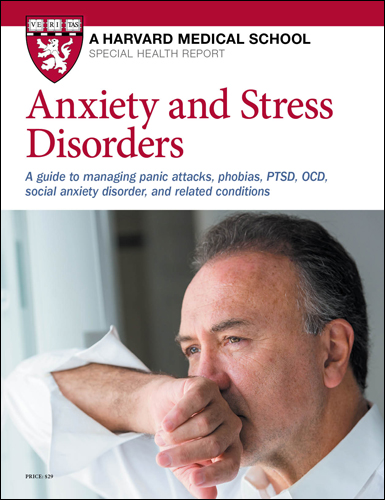Anxiety in the time of COVID-19

As if we didn't already have enough to worry about, along came COVID-19 in early 2020 to push our anxiety to new heights. The reasons were not hard to discern — the threats of illness and possible death or lingering symptoms; job insecurity; social isolation (or its opposite, too much togetherness in small, crowded living spaces); the upending of daily routines; financial losses; for some, the looming threat of eviction; for others, the impossibility of keeping a business afloat. The list goes on.
For many people, however, the issue was not just everyday anxiety, but the risk of anxiety disorders or stress disorders. The Kaiser Family Foundation found that by late 2020, 37% of Americans had symptoms of generalized anxiety disorder. And a 2021 study, published in JAMA Psychiatry, found PTSD among almost one-third of people who had been hospitalized with a severe COVID infection and who were later referred for a post-recovery health assessment.
As the pandemic eased in the spring of 2021 with the arrival of safe and effective vaccines, anxiety levels in the general population dropped, according to the CDC's Household Pulse Survey. But that doesn't mean the pandemic has permanently loosened its grip.
The potential of long-term disruptions remains as variants multiply. Health care workers in many hospitals have been under unrelenting strain that has left them angry and burned out, and worried about the infection they could be bringing home to their families. Parents and teachers are on edge about conflicts over vaccines and mask mandates, not to mention the health of their children, as cases rise in kids. And people who lost loved ones to the virus, who suffered serious financial losses, or who continue to suffer from ongoing health effects of COVID could be dealing with the consequences for a long time to come.
To combat anxiety, health experts say that it's important to take breaks from the news and social media. Disconnect from screens and spend more time in healthy pursuits such as exercising, getting out into nature, and interacting with people you care about. If you can't connect with your loved ones in person, do so over the phone or through apps like Zoom or FaceTime. Also, get vaccinated.
One study found that people who believed they had a higher likelihood of avoiding or surviving COVID had less anxiety. Trust in doctors and scientists played a role. Don't rely on social media for health information but seek out reliable guidance from your doctor or the websites of major medical organizations and journals. If you find yourself becoming overwhelmed, see a mental health professional for counseling.
For more information on therapy or other treatments for anxiety, check out Coping with Anxiety and Stress Disorders, a Special Health Report from Harvard Medical School.
Image: © CentralITAlliance/Getty Images
Disclaimer:
As a service to our readers, Harvard Health Publishing provides access to our library of archived content. Please note the date of last review or update on all articles.
No content on this site, regardless of date, should ever be used as a substitute for direct medical advice from your doctor or other qualified clinician.
















